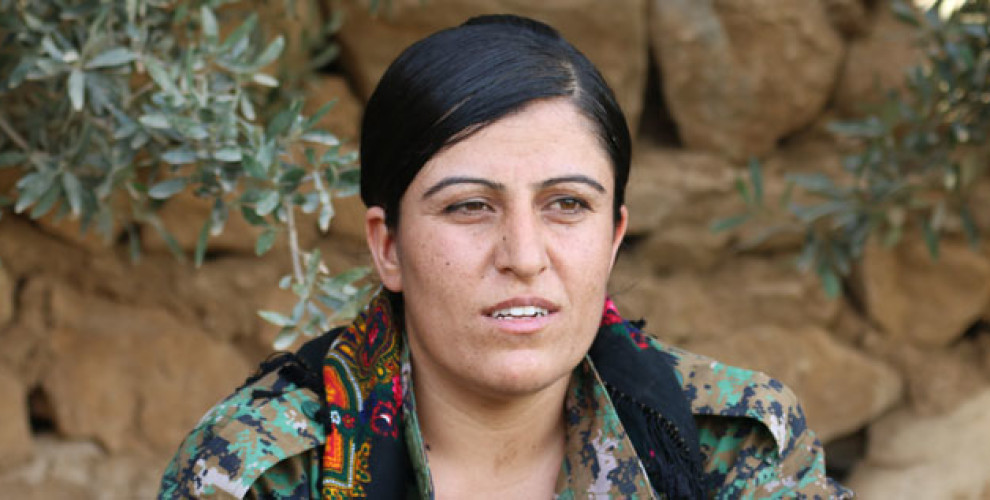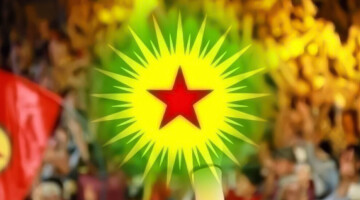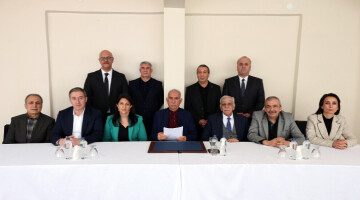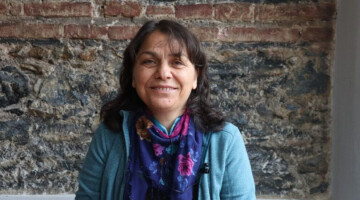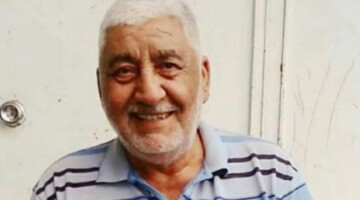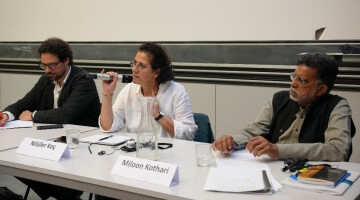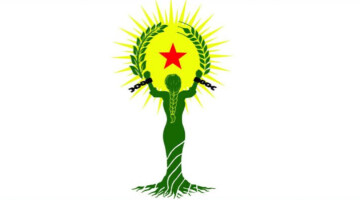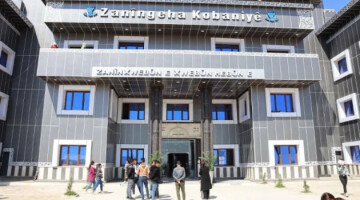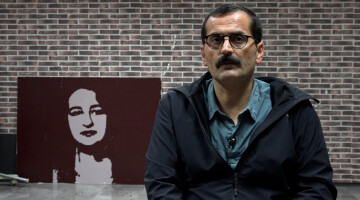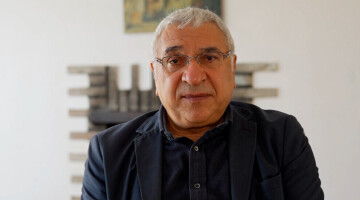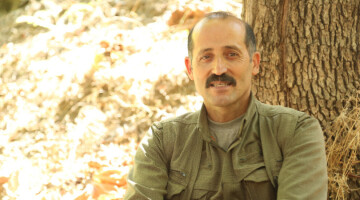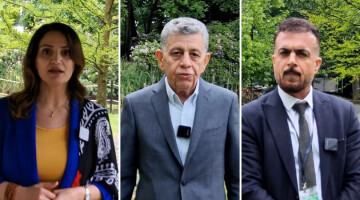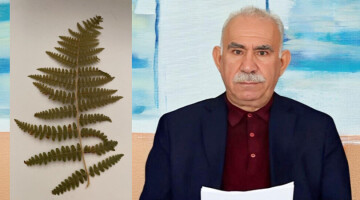"When the genocide was launched, we made all our preparations to set out. After two days, the 5th August, we finally reached Shengal. Shengal was engulfed in flames. Extensive mass killings and slaughtering had taken place. It was unbearable. The road was paved with corpses.
Before I arrived there, the fighters of the People's Defense Units (YPG) and the Women's Defense Units (YPJ) had already opened a safe corridor to be able to even reach mount Shengal.
As we rushed from Rojava to Shengal, we encountered on our way all the civilians, whom the comrades from the YPG and YPJ led safely over the border to Rojava. The situation was very tense and dramatic. Mothers wept, the elders were in miserable conditions. And young mothers who were cradling their infants on their chests despaired.
They all fled from the ISIS gangs. Days long did they march in a tormenting heat, thirsty and hungry. And in front of our eyes, have they died of thirst, hunger and the heat.
THIRST AND THE HEAT
The suffering of thirst and the brutal heat became a follow-up genocide of the Êzidîs. We had carried some bread and water with us, which we distributed all to them. But the water soon finished and we all remained in the midst of the desert without a drop of water.
I really do not know how to be ever able to describe that time.
Amid those fierce conditions and circumstances, we guided the people from Shengal to Rojava. And we headed firmly straightforward to the mountain.
After some time we reached our destination.
Numerous Êzidîs were still there, who despite all stood their grounds unfalteringly and did not abandon their soil, no matter what. There were many young people who took up arms and joined the resistance. Those who have stayed in the mountain, those who rested upon Mount Shengal waged a struggle to protect their holy land.
For this soil they offered a sacred resistance.
After some time the ISIS gangs launched attacks on the humanitarian corridor the comrades had opened and heavy clashes erupted anew, and the corridor became impassable.
Back then we took two districts of Shengal under our control, from Kersê until Çilmêra. No support whatsoever could get through to Shengal from outside. Since the route had been blocked, we could not take our wounded comrades out either. For that reason many a comrade fell martyr.
In fact, faithfulness and comradeship reach a new level under difficult conditions and circumstances. The state of the civilians and the reality of the fighter's sacrifices led to an unshakable fusion of the people and the fighters. This was what filled us with happiness and what we cherished highly.
ÊZIDÎ WOMEN TAKING UP ARMS
Our arrival to Shengal and the sight of us female combatants in the ranks of the struggle, has left a deep impact on the people. They said: "How could a woman fight, women do not know how to fight."
The barbaric ISIS gangs massacred thousands of Êzidî women and abducted thousands more. This actually left the traumatized women with no self-trust whatsoever.
But after witnessing over the time the battle our female comrades put up, the women of the Êzidî community revived with new self-confidence. And then all of a sudden they took up arms, fighting the ISIS gangs. That moment, the women were shouldering weapons and battling those ferocious ISIS gangs, the perception of how women were viewed changed in Shengal dramatically.
The resistance and leading roles of our female comrades martyr Zîlan, martyr Bêrîvan and martyr Evrîman influenced the Êzidî community to the core. Now they took their daughters by the hand, taking them to us and wanted us to teach them fighting.
Like martyr Bêrîvan Arîn and martyr Bêrîvan Şengal, dozens of Êzidî women have positioned themselves on the frontlines to take revenge and died in action, fighting bravely to the last breath. On this sacred land so much blood has been shed. Our most beautiful, most valiant ones have been embraced by the earth of this soil. The Êzidîs organised themselves quickly and formed their own defense units, the YBŞ, the Shengal Defense Units and YJŞ, the Shengal Women's Units. And for now, they are taking revenge on the 73rd genocide."

